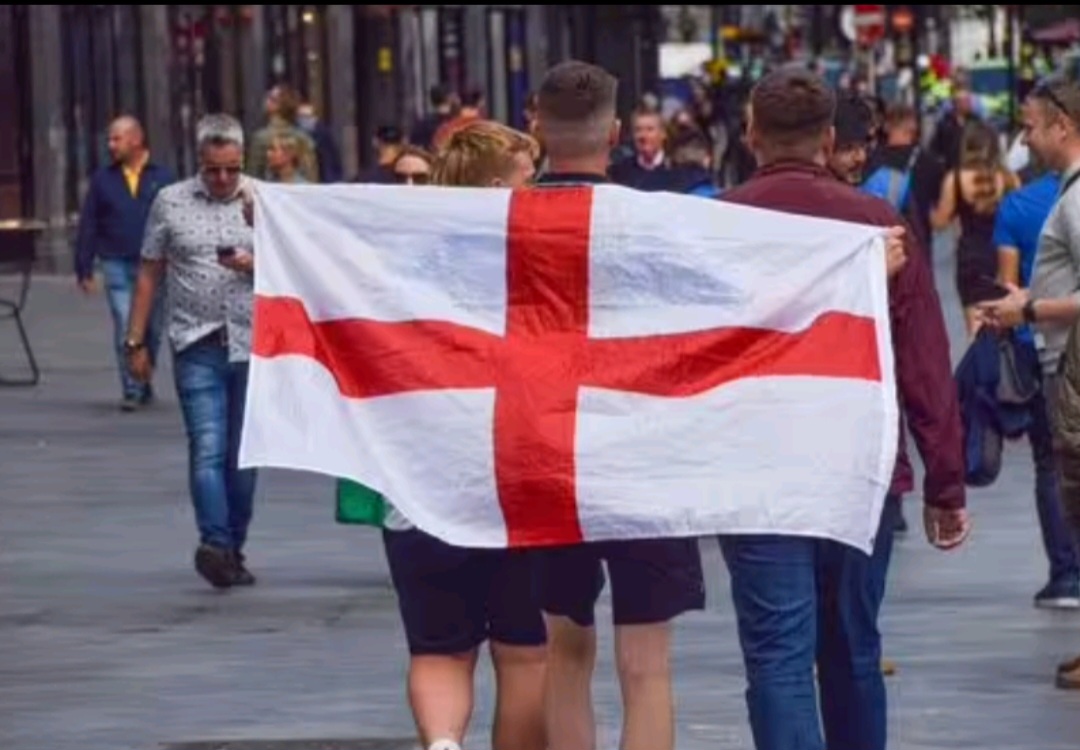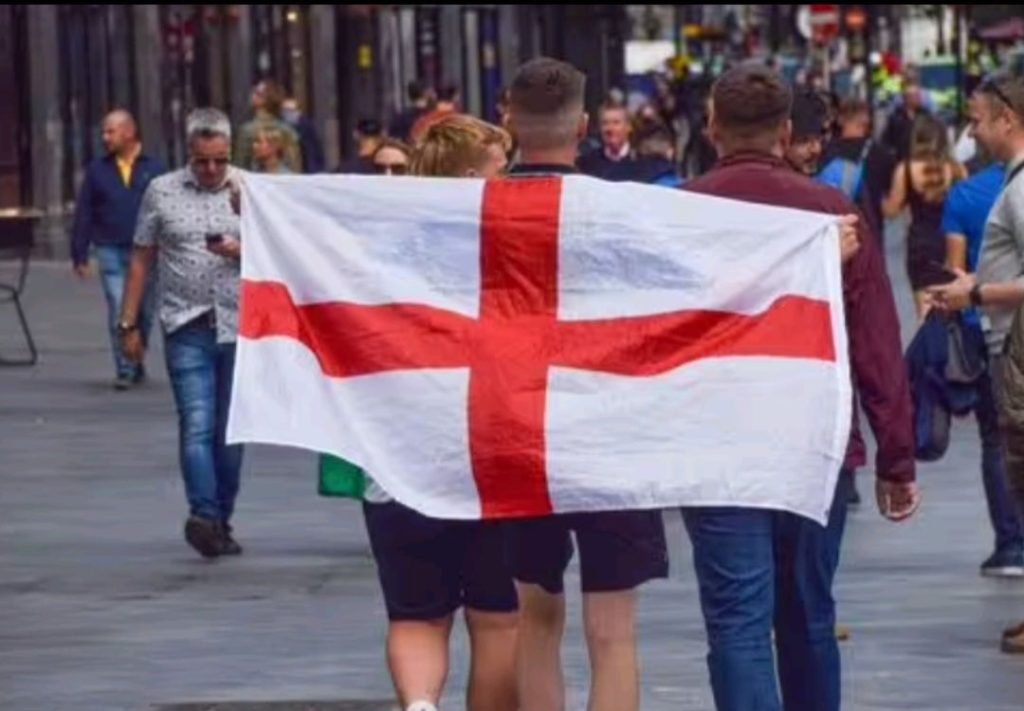
The St George’s Cross, emblematic of English identity and tradition, finds itself at the center of a contentious debate over its symbolism and significance. A recent poll commissioned by former Tory treasurer Lord Ashcroft has revealed a stark divide among voters, particularly along party lines, regarding the flag’s connotations.
With one in eight Labour voters labeling the flag as “racist and divisive,” contrasting sharply with the overwhelming support among Tory supporters, the poll highlights deep-seated divisions within British society regarding national identity and patriotism as reported by BBC News.

The findings of the poll, released on the eve of St George’s Day, underscore the complexity of attitudes towards national symbols and their interpretation in contemporary Britain. While a significant majority of voters across the political spectrum view the St George’s Cross as a benign symbol representing England, the divergence in perceptions between Labour and Tory voters reflects broader ideological differences and cultural sensitivities.
The notion of inclusivity and diversity, championed by Labour, intersects with concerns over nationalism and cultural hegemony, giving rise to skepticism towards symbols perceived as exclusionary or jingoistic.
Labour’s stance on the St George’s Cross is situated within a broader narrative of identity politics and social justice, wherein symbols and traditions are subject to critical scrutiny through the lens of race, ethnicity, and historical context.
The flag’s association with nationalism and right-wing ideology complicates its reception among progressive circles, where efforts to foster inclusivity and multiculturalism clash with perceived symbols of English exceptionalism and colonial legacy. The labeling of the flag as “racist and divisive” reflects a broader critique of national symbols and their role in shaping collective identity in a multicultural society.
In contrast, the Conservative Party’s embrace of the St George’s Cross as a symbol of patriotism and national pride reflects a traditionalist view of British identity rooted in notions of heritage and tradition.
For Tory supporters, the flag represents a celebration of Englishness and a reaffirmation of traditional values, untainted by the specter of political correctness or cultural relativism. The party’s alignment with symbols of national identity serves to galvanize support among its base and reinforce its narrative of cultural continuity and national resurgence.
The polling results coincide with efforts by Labour leader Sir Keir Starmer to reposition the party as a champion of patriotism and national identity, challenging the Conservative monopoly on symbols of Britishness. Starmer’s rhetoric, framed as a defense of “proud national institutions” and British values, seeks to appeal to voters disillusioned with the Conservative Party’s handling of national identity and cultural heritage.
By asserting Labour’s commitment to patriotism and Britishness, Starmer aims to broaden the party’s appeal and challenge prevailing perceptions of Labour as detached from the concerns of ordinary working-class
However, the polling data also reveals regional variations in attitudes towards national symbols, with support for the Union flag stronger in England compared to Scotland, Wales, and Northern Ireland. The divergent identities within the United Kingdom, shaped by historical, cultural, and political factors, complicate efforts to forge a cohesive national identity centered around shared symbols and traditions.
The symbolism of flags, whether the Union flag or the Cross of St George, reflects the complex interplay of historical memory, political ideology, and cultural identity within the British Isles.




